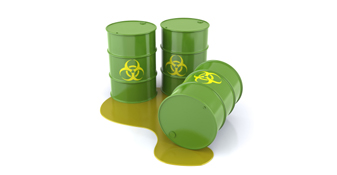Toxicology
-

Tennessee Poison Center warns about dangers of ‘dewshine’
A lethal concoction of racing fuel and Mountain Dew claimed the lives of two Tennessee teens and has sparked the Tennessee Poison Center (TPC) to warn about the lethality of what has been called “Dewshine.” The Tennessee Poison Center, housed at Vanderbilt University Medical Center, was involved in the care… Read MoreJan 29, 2016
-

VUCast: Easing allergies; Are your cleaning products safe?
In the latest VUCast: See which simple food can ease your allergies; learn about Vanderbilt's role in testing man-made chemicals; and what new invention can help reduce drought? Watch now! Read MoreJun 8, 2015
-

Vanderbilt and Pittsburgh to lead new center to identify toxic chemicals
EPA is establishing a new center at Vanderbilt University and the University of Pittsburgh to develop an alternative approach for toxicity testing to help evaluate the safety of the 80,000-plus chemicals in general commerce. Read MoreMar 25, 2015
-

Cold weather increases chances of carbon monoxide poisoning; Vanderbilt toxicologist offers prevention advice
Temperatures in the next few days are predicted to continue to be the coldest of the winter so far, and people using space heaters to get some extra warmth into their living and working spaces need to be aware of a potential “silent killer” inside… Read MoreJan 7, 2014
-

Mad as a Hatter: Global efforts to reduce mercury emissions
Last month representatives of more than 140 countries agreed to the terms of a treaty called the Minamata Convention that would ban many uses of mercury by 2020. But the efforts do not go far enough, says Vanderbilt pharmacologist Michael Aschner. Read MoreFeb 18, 2013
-

Toxicology society honors Guengerich
F. Peter (Fred) Guengerich, Ph.D., Stanford Moore Professor of Biochemistry, is the 2013 recipient of the Society of Toxicology Merit Award in recognition of distinguished achievements to toxicology throughout his career. Read MoreJan 24, 2013
-

Carcinogenic chemicals cramp DNA
Researchers have determined how a DNA lesion caused by exposure to chemicals may spark cancer formation. Read MoreNov 21, 2012